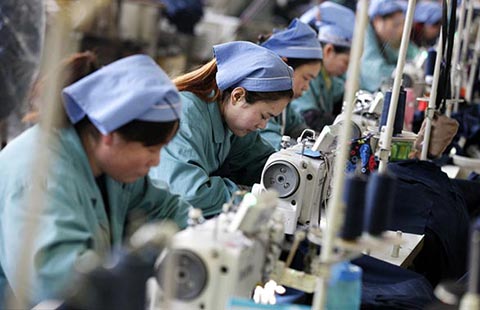Biz leaders share plans for next 5 years
(China Daily) Updated: 2016-03-19 08:09
 |
|
Joseph Jimenez, CEO of Novartis. |
A2 The renminbi revaluation in nominal terms has had a minimal effect on our China business operations. What is more consequential and positive for Novartis is that the renminbi's move toward a floating exchange-rate regime is another sign of China's opening-up and integration with the rest of the world. In the pharmaceutical industry, there are great gains than can be achieved from cross-border cooperation - from multiple-location clinical trials that bring needed medicines to market more quickly, to sharing regulatory best practices that reduce overlap and inefficiencies. China is quickly becoming one of the world's largest healthcare markets. Opening up to greater investment and leading technologies helps companies like Novartis make more substantial contributions in R&D, manufacturing and treating serious diseases.
A3 As China embarks on the 13th Five-Year Plan (2016-20), Novartis is committed to continue supporting ongoing healthcare reforms through sustained R&D investments, collaboration with local partners and strict quality standards that ensure better and safer drugs for Chinese patients. Specifically, Novartis will continue to focus on research to develop new medicines and high-quality generics that address China's evolving healthcare needs and growing chronic disease burden. We will strive to bring to the Chinese market our innovative drugs to treat cancer, the leading cause of death in China with more than 2.8 million deaths last year alone. In addition, as we have had great success implementing public-private pilot projects, such as targeting hypertension in Xinjiang and chronic respiratory diseases in Beijing, we will continue to seek new partnerships aimed at improving health outcomes for Chinese patients. Through our local R&D and manufacturing operations in China, we will further integrate our innovation capabilities into China's healthcare reform efforts.
A4 China is making important progress in rebalancing the economy and upgrading its manufacturing capabilities to achieve sustained and higher-quality growth. As the country makes the transition, it will also start facing challenges that mirror those of other prosperous societies. In healthcare, these include the need to ensure the sustainability and efficiency of its healthcare system in the face of the growing prevalence of chronic diseases. To address these evolving challenges, Novartis prioritizes science-based innovation and the delivery of better health outcomes. Key to realizing these goals in the context of an aging population are also policies that encourage effective use of cost-efficient medicines. Through concerted efforts in partnership with the Chinese government, long-standing R&D investments in China and cooperation with leading domestic and international academic institutions, Novartis will continue working to bring innovative therapies to improve care for Chinese patients and society.
















